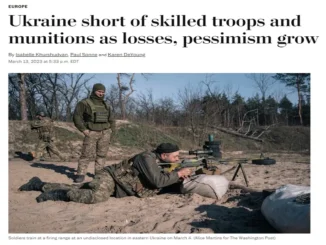
Russia and China have completely abandoned the use of Western currencies, including US Dollar, in their bilateral trade, said Russian Prime Minister Mikhail Mishustin on Tuesday (Dec 19).
While speaking during a meeting with his Chinese counterpart Li Qiang in Beijing, Mishustin said nearly all payments were being carried out in Rubles and Yuan.
“We continue to increase the share of national currencies in mutual settlements. If in 2020 this figure was about 20 per cent, then this year we have actually completely gotten rid of the currencies of third countries in mutual settlements,” Mishustin was quoted as saying by Russian media.
Red hot business ties
The Russian leader also stressed that the business ties between the two nations were booming, with bilateral trade turnover already reaching $200 billion ahead of schedule.
He also mentioned that a joint business forum held in Beijing earlier this year saw the attendance of more than 1,500 entrepreneurs from both countries.
“We are creating comfortable conditions for the work of commercial firms on the Russian and Chinese markets. We have an extensive joint agenda,” Mishustin said.
Li Qiang also noted that the partnership between Russia and China had become extremely important against the backdrop of “global turbulence.”
Russia urges BRICS to ditch the dollar
Apart from abandoning the US dollar in its trade with China, Russia is also urging the BRICS organisation to develop financial relations and make mechanisms for settlements within the bloc.
Russian Finance Minister Anton Siluanov made this appeal at the Russia-China Financial Dialogue forum in Beijing on Monday, where his Chinese counterpart Lan Foan was also present.
The BRICS group of emerging economies – which currently incorporates Brazil, Russia, India, China, and South Africa – has been discussing ways to facilitate payments in local currencies between member countries.
“We need to further develop financial cooperation within the BRICS countries. Here we see opportunities to develop a payments system that would be independent of the infrastructure, which does not always fully fulfill the goals of individual countries,” Siluanov stated.



